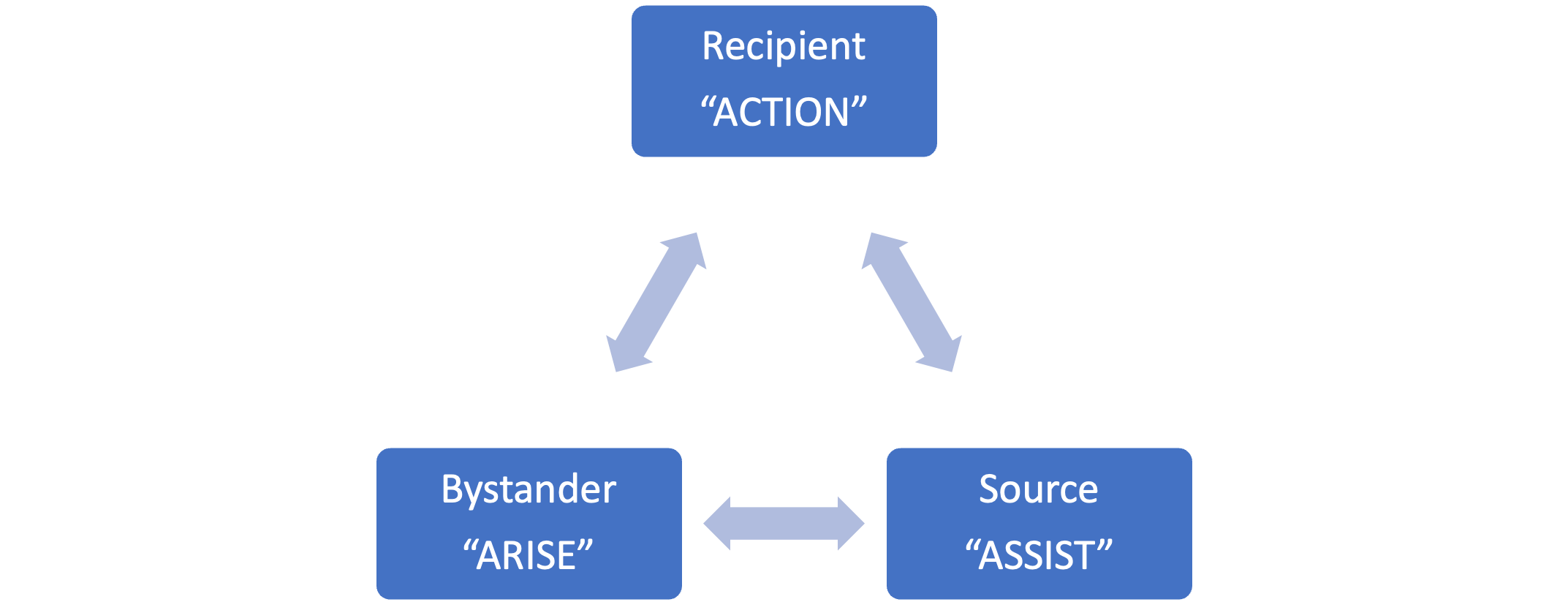Creating an inclusive environment can be an important component to developing strong relationships with colleagues and providing quality care to patients. It is likely you will experience microaggressions—as a recipient, source, and/or bystander. Exposure to microaggressions is associated with negative consequences including, but not limited to, mental health effects, physical health problems, loss of trust in the healthcare system, and strained relationships. There are a variety of frameworks to help navigate microaggressions. The Microaggressions Triangle Model is one such framework.
Check Your Understanding
Which of the following best defines microaggressions?
True or False?
Exposure to microaggressions is associated with negative consequences including, but not limited to, mental health effects, physical health problems, loss of trust in the healthcare system, and strained relationships.
True
Correct
False
Incorrect
Try again
Question
Which of the following best describes the definition of the microaggression recipient?
Check your understanding
Using the Microaggressions Triangle Model, please match the microaggression role to the most appropriate model for response.
You have now completed the Microaggressions module. You will have an opportunity to practice responding to microaggressions in your upcoming interprofessional education session.
References
- Ackerman-Barger K, Jacobs NN, Orozco R, London M. Addressing microaggressions in academic health: a workshop for inclusive excellence. MedEdPORTAL. 2021;17:11103.
- Ackerman-Barger, Kupiri PhD, RN; Jacobs, Negar Nicole PhD. The Microaggressions Triangle Model: A Humanistic Approach to Navigating Microaggressions in Health Professions Schools. Academic Medicine. 95(12S):p S28-S32, December 2020. | DOI: 10.1097/ACM.0000000000003692
- Anderson, N., Lett, E., Asabor, E.N. et al. The Association of Microaggressions with Depressive Symptoms and Institutional Satisfaction Among a National Cohort of Medical Students. J GEN INTERN MED 37, 298–307 (2022).
- Cheung F, Ganote CM, Souza TJ. Microaggressions and microresistance: Supporting and empowering students. In: Faculty Focus Special Report: Diversity and Inclusion in the College Classroom. 2016, Madison, WI: Magna Publication
- Sue DW. Microaggressions in Everyday Life: Race, Gender, and Sexual Orientation. 2010, Hoboken, NJ: John Wiley & Sons.
- Bradberry, T., & Greaves, J. (2009). Emotional Intelligence 2.0. TalentSmart.

